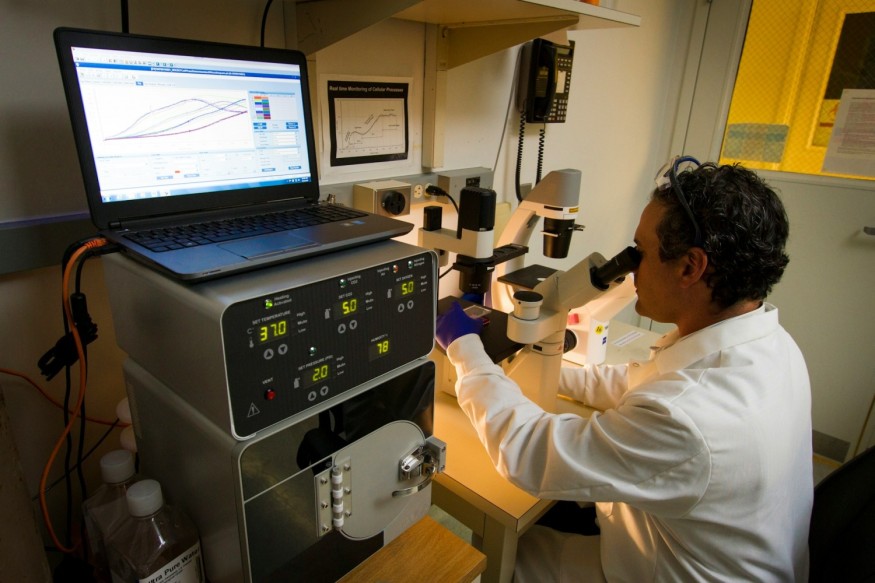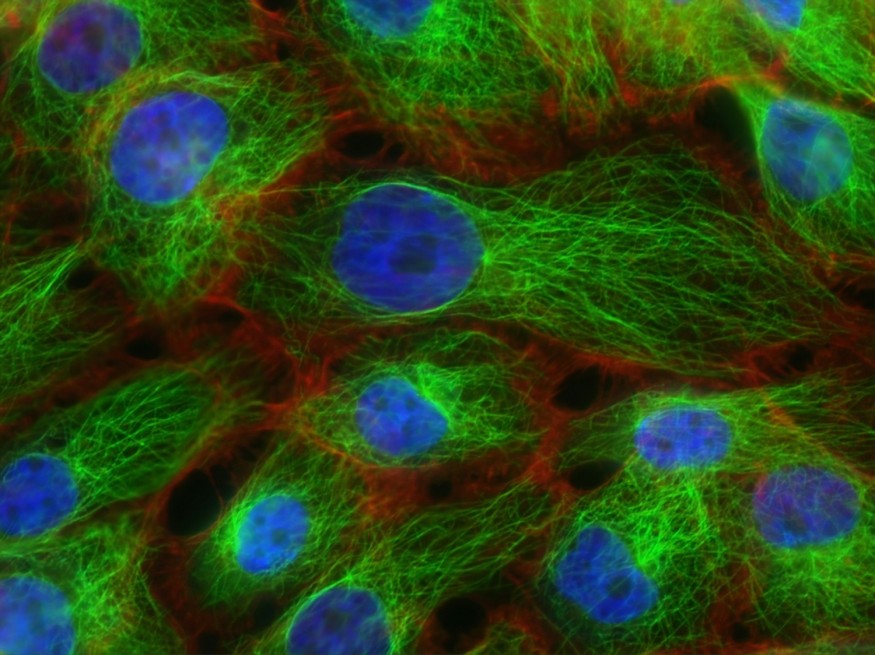How Cloud Platforms Are Accelerating Genetic Research
Cloud platforms are making research more effective across industries. In the field of genetic research, the use of genomics cloud computing is allowing for streamlined collaboration between researchers, easier scalability, and the ability to store large volumes of genomics data storage. In this article, we will explore these capabilities in greater detail and how they are influencing the field of genetic research.

The Role of Data in Genetic Research
The ability to store, share, and analyze data plays a critical role in genetic research. Researchers work with large datasets in areas such as DNA sequencing and gene expression data. Traditional computer systems are insufficient for handling the volumes of data that scientists require for effective research. One of the advantages of genomics cloud platforms is that they provide scalability and thus allow researchers to work on projects of vastly different sizes.
However, researchers need to "re-architect" systems for clouds. In these cases, cloud specialists must be called in to assist in these processes. You can hire dedicated Azure developers to get you started and assist team members with learning techniques as smoothly as possible.
Key Benefits of Cloud Platforms in Genetic Research
There are numerous benefits to using genomics cloud computing for genetic research. Among the biggest ones are the following:
- Scalability and flexibility. Genetic research projects come in all sizes and forms. For this reason, it is critical that researchers have the ability to scale their constructs according to the specific parameters of any given project. In working on complicated projects, scientists have to work with huge amounts of personal data, and this requires high-level scaling ability. The right genomics cloud program will give you this.
- Enhanced collaboration. Research projects often involve multiple people working on projects from diverse places. More advanced cloud platforms will allow for collaboration among large numbers of participants from any location, which facilitates communication and streamlines project completion.
- Improved data security and compliance. When working with sophisticated cloud platforms, you will have the advantage of having improved security for genomics data storage. Traditional systems often leave themselves vulnerable to accidental data exposure, which can cause a host of legal and ethical issues. In addition to being more secure, cloud platforms are often in better compliance with regulations, which provides researchers with additional assurance of their security.
Use Cases of Cloud Platforms and Genetic Research
In the sections below, we will look at three real-world use cases for the use of genomics cloud computing platforms for genetic research.
Genomic Data Analysis
Scientists are working furiously on mapping and analyzing the human genome. Before the use of cloud platforms, it would have been impossible for scientists to work together on a single platform in their analyses. An example of this collaboration is Amazon Web Services. AWS works together with a wide group of people to provide customized services and tools for storing genomics in the cloud. It also enables more streamlined analysis and the creation of diverse datasets for systematizing data more easily.
Many diverse parties have gotten on board with this project, including multiple pharmaceutical companies, hospitals, and others.
Drug Discovery and Personalized Medicine
Cloud platforms have been hugely assistive in accelerating the development of new drugs, particularly in the area of personalized medicine. Thanks to the increased use of AI in analyzing genetic variations and the possibility of compatibility with certain types of medicines, these processes have been sped up by a great deal.
One example of a drug that was developed thanks to the use of AI and compatible platforms is called DSP-1181. Its creation was made possible thanks to a collaboration between British and Japanese researchers. The drug is said to be a potential game changer in treating obsessive-compulsive disorder.
Disease Research and Prevention
Disease prevention is also a major category that is significantly more effective with the use of clouds. In the same way that genomics data storage and analysis is simplified for the development of medicines, disease-related data can also be analyzed more easily when they can be stored easily, and AI is used for analysis.
One category of diseases that has been the subject of AI-driven research recently is zoonotic diseases. With the COVID-19 pandemic having overturned many global systems in the recent past, these studies have been given a lot of focus. Similarly, diseases such as EBOV and leptospirosis are being examined with much greater effectiveness. Although not all of these diseases have become preventable, scientists are certainly making much greater progress than ever before.

Cloud Platforms and AI: A Synergistic Approach
As mentioned above, AI is increasingly used in genetic research, and there is a logical reason for this.
AI and Machine Learning
Cloud platforms are able to integrate with AI and machine learning tools seamlessly to conduct analyses using genomics in the cloud. This works by training algorithms on datasets and providing potential outcomes through the use of patterns or potential objects to be recognized. Once these algorithms are sufficiently installed in a system, models can be optimized, and systems can predict responses.
Data Analysis Automation
In a similar way, once systems are trained to work with datasets in a specific way, genomic data analysis can be automated, rather than users having to spend large amounts of time conducting the analysis themselves. Although not all analyses lead to concrete conclusions, the process of analysis and overall potential are significantly increased.
Predictive Analytics in Genomics
For genomics, in particular, machine learning algorithms can be extremely useful in predicting genetic mutation possibilities. These outcomes, in turn, predict what outcomes will be for patients, and determining them early can enable preventative measures that can make a big difference for patients.
Overcoming Challenges of Cloud Adoption in Genetic Research
Genetic research presents a number of challenges that scientists have had to deal with ever since its beginnings. However, the use of genomics cloud platforms is helping to meet these challenges.
Data Privacy Concerns
When working with human genomic data, there are significant risks of accidental exposure, which can have serious legal and ethical implications. However, the encryption and other secure features of clouds help to mitigate all these concerns by securing systems and keeping genomics data storage private by offering only controlled access data.
Cost Management
Before the use of clouds, scientists had to store their information in diverse places, and these costs, as well as the resources spent on analysis, easily became huge. With the possibility of sharing costs between parties in the use of clouds, participants can save a great deal.
Skill Gaps and Adoption Barriers
The use of clouds is not simply about punching in and sequencing data; there are skills that need to be learned. Both data and applications need to be migrated into clouds from any number of servers, and timelines need to be kept in mind.
Future Outlook: The Next Frontier of Genetic Research with Clouds
Finally, let's take a look at what the future of genetic research with the use of clouds holds.
Integration with Emerging Technologies
As AI and related technologies become more sophisticated, they will be further integrated into genetic research, leading to even more sophisticated analyses and more productive solutions. Other technologies include quantum computing and edge computing.
The Impact on Healthcare
In creating more reliable information about genetics—and consequently the development of medicines and understanding of diseases, things like precision medicine will also be significantly enhanced. Drugs will be streamlined, and the whole industry will move forward more rapidly.
Ethical Considerations
There are, of course, ethical considerations involved. Any time genetic material is used for research, it leads to questions about genetic engineering and crossing lines that could be abused in the future. This is something that researchers will have to keep in mind.
Final Words
Cloud technology is proving to be a major game changer in genetic research. The use of cloud platforms is allowing researchers to conduct more effective, accurate, and organized research with diverse parties across continents. Although it is a system that requires training, the field is poised to continue making major improvements in the future.
© 2026 ScienceTimes.com All rights reserved. Do not reproduce without permission. The window to the world of Science Times.











